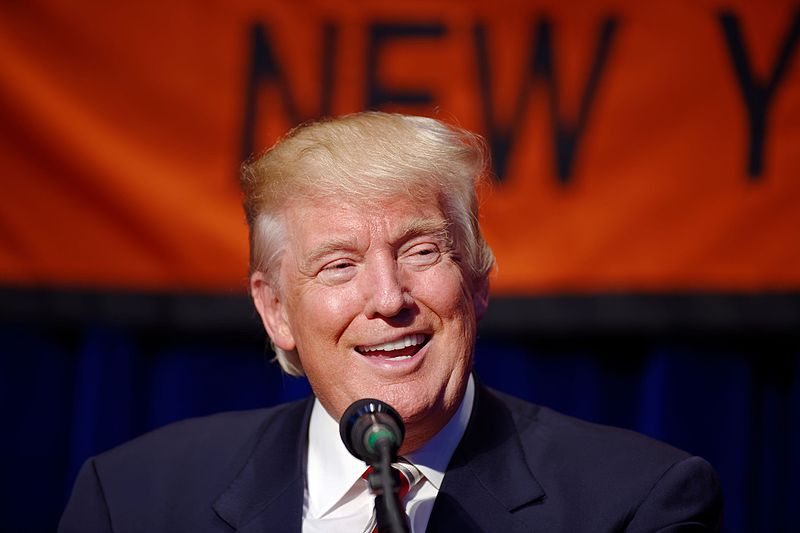
November 18, 2016, by Tony Hong
Donald Trump and China
By Emmanuelle Lazzara, PhD Candidate.
From the School of Sociology and Social Policy at the University of Nottingham UK.
“It’s not like I’m anti-China. I just think it’s ridiculous that we allow them to do what they’re doing to this country, with the manipulation of the currency, that you write about and understand, and all of the other things that they do.”
“We can’t continue to allow China to rape our country” — Trump at Ft. Wayne Indiana Rally, 2016.
Above are a few comments made about China by President-elect Donald Trump during the torrid and contentious 2016 US presidential elections. Donald Trump, during the Republican primaries and the presidential campaign has used very tough rhetoric speaking about China. He has accused China of stealing American manufacturing jobs, causing massive trade imbalances with the US, manipulating its currency, and perhaps most incredibly, was the accusation that human-caused climate change was in fact a conspiratorial Chinese hoax.
However, these rhetorical flushes regarding China follow a long tradition of ‘China-bashing’ when the US presidential elections arrive every four years. Andrew Nathan writes in detail for the American Review, that Sino-US relations would often crop up during the presidential debates. In the 1952 campaign, Eisenhower railed against the Democrats for losing China to the communists. In 1992, the theme of US jobs being lost to China arose. Two presidential terms later, trade surplus ‘mercantilism’ was a theme during the 2000 campaign, and China’s tag of being a currency manipulator began during the 2004 campaign.
Yet, even with this history, the 2016 Presidential Elections have proven to be quite unique in terms of its unpredictability. The same can be said of future Sino-US relations. Perhaps the arena of greatest worry is the South China Sea. The United States, since the end of the Second World War has been a blue-water superpower and the Pacific is considered to be its own backyard. US fleets (from the US’s point of view) have patrolled this ocean and its sea lanes to maintain international maritime rules and norms, and to protect US interests. However, since Xi’s leadership, Chinese presence in the South China Sea has grown more assertive. Claims on islands and exclusive economic zones have now been bolstered by a bolder military presence. Before, US Navy warships would pass through these zones at the chagrin of the Chinese administration. But now that chagrin is accompanied with denouncements and Chinese ships shadowing their US counterparts.
US presence in the region is for now welcomed on the whole by US allies as it maintains the status quo. However, a recent exception is the Philippines. Despite winning its case against China regarding maritime entitlements, under a new leader, President Duerte has gambled that China is the power that should be cozied up to, not the US. This has led to the Philippines seeking warmer ties with China, and turning away from US security.
Coupled with this is the prediction made by some China-watchers that Trump may lead the US to uncouple itself from East Asian security commits. Trump has said on several occasions that US allies, such as Japan and South Korea, must pull their weight with regards to their security commitments with the US. If Trump does indeed undo the United States’ ‘Asian pivot’, China’s influence in the region will only increase.
However, on the other side of the equation, there have been reports that Trump will actually adopt a much tougher and aggressive stance towards China in the South China Sea. Rudy Guilani is now considered to be a frontrunner for the position of Secretary of State in the future Trump administration. It was reported that Guilani, speaking to business leaders in Washington with regards to China, that the Trump would intend to increase the US Navy to 350 ships:
“At 350, China can’t match us in the Pacific. At 247 ships, we can’t fight a two-ocean war; we gave up the Pacific. If you face them with a military that is modern, gigantic, overwhelming and unbelievably good at conventional and asymmetric warfare, they may challenge it, but I doubt it.”
Hence, just as this year’s presidential elections have proved to be difficult predict, the direction of Sino-Trump relations will also be hard to predict as well. Given that Trump lacks foreign policy experience, his learning curve will be incredibly steep. The health of Sino-US relationship will therefore be heavily dependent on Trump’s advisors rather himself. However, President Xi will react to Trump, will also be extremely interesting.
No comments yet, fill out a comment to be the first

Leave a Reply